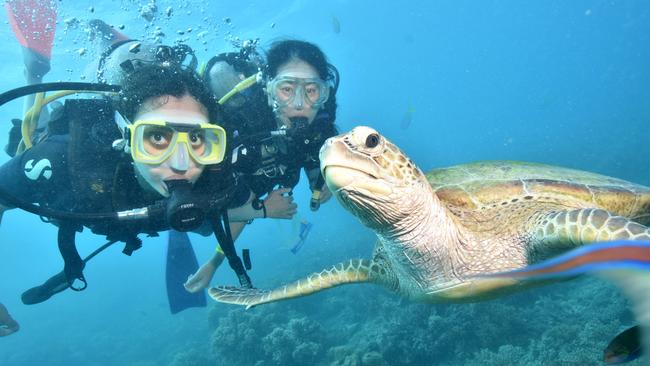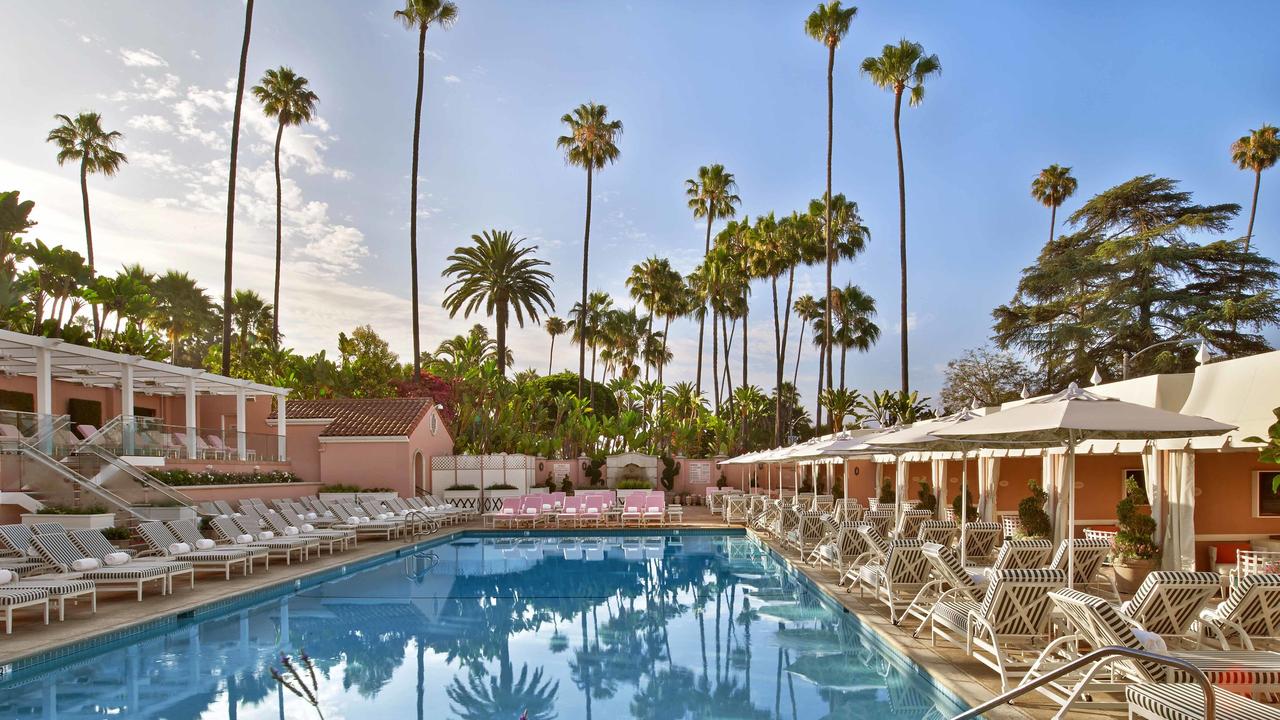Green activists killing tourism on the Great Barrier Reef
Environmental group claims that the Barrier Reef is dying push local tourism to ‘near recession’.

Claims by environmental groups that the Great Barrier Reef is dying have pushed the north Queensland tourism industry to the point of “near recession”, with visitor numbers slumping amid negative perceptions of the natural wonder.
Operators are reporting large falls in reef cruise bookings by local and international tourists, while Cathay Pacific recently announced it would drop its direct flights from Hong Kong to Cairns from October — after a quarter of a century servicing the route — because of a lack of demand.
Cairns-based Coral Expeditions, which operates luxury cruise boats, says passenger numbers to the reef dropped 15 per cent in the 12 months to June, following flat numbers the previous year. “There’s definitely a Queensland-wide downturn in reef tourism and it’s definitely affected by the perception of the reef health,” said Coral Expeditions commercial director Jeff Gillies.
“People are not going to the Great Barrier Reef.”
Former Cairns mayor Kevin Byrne said the region’s tourism industry was in dire shape. “We now have a monumental task to get people to come to the Great Barrier Reef,” he said. “As a living organism it is in wonderful shape and people need to be proud enough to stand up and say it.
“Our tourism industry here is pretty well static, if not in recession.”
Campaigns by environmental groups, claiming the reef has lost about 50 per cent of its coral over the past 30 years, have increasingly been the subject of world headlines in recent months. A UBS report shows Australia is especially losing favour with the Chinese, slipping from the second most popular destination in April last year to the fourth most popular six months later.
The website of The Citizens of the Great Barrier Reef, a conservation group, states that climate change is the reef’s biggest threat, “causing rising sea temperatures, ocean acidification and extreme weather events”.
“The sequential mass coral bleaching we are witnessing on the Great Barrier Reef is the literal effect of climate change,” it says.
The group’s chief executive, Andy Ridley, agrees there is a problem with the perception that the reef is dead. “The situation is not black and white,” he said. “Some parts of the reef are extraordinary; other parts are affected. It’s clearly a nuanced situation. The perception is the reef is dead, which it isn’t.
“I can understand from a tourism perspective that is bad for business, but from a conservation perspective it’s equally terrible. It’s a terrifying idea that the world would give up on one of the planet’s greatest natural icons.”
Mr Byrne said the push by environmental activists to use the reef as an example of climate change devastation — as well as the inability of tourism organisations to take on the issue of branding Cairns as the gateway to the reef — had hurt the industry.
“For years people have sat by and watched the Great Barrier Reef being used as a proxy for climate change and climate change devastation,” he said. “The fact is the Great Barrier Reef from time to time has issues with coral bleaching, as would any structure 2200km long. What the Great Barrier Reef is undergoing is similar to Adani: it is being used as a proxy for the climate wars debate.”
Mr Byrne called for tourism industry figures and political leaders to stand “shoulder to shoulder” to “promote the reef as a world icon and send the message that it is not in the bad state everyone thinks it is in”.
The drop-off in visitor numbers suggests the negative perception of the reef’s health is in danger of becoming entrenched — especially given the high profile of some of those who believe it is dying. Five years ago, on a visit to Queensland, then US president Barack Obama warned that the “incredible natural glory” of the Great Barrier Reef was threatened by global warming.
In 2017, former US vice-president turned climate activist Al Gore said there “was a choice between the Adani mine and the Great Barrier Reef”. And last week, on another trip to Queensland, Mr Gore urged Australian governments to swap “dinosaur projects of the past” for renewables, in what was a thinly veiled swipe at those backing Adani. Renowned environmentalist David Attenborough has also expressed alarm about the reef’s health.
Mr Gillies said it was essential the federal government intervene to address the way the reef was being marketed overseas.
A spokesman for Queensland Tourism Minister Kate Jones said the launch of an advertising campaign last month was intended to turn the tourism industry’s fortunes around.



